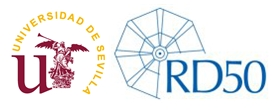Speaker
Description
Neutrons play a key role in many aspects of science and technology. Just to mention some examples, neutrons are responsible for the nucleosynthesis of elements in the stars or the functioning of fission and fusion reactors, but they are also a source of problems due when one considers the damage that they cause to, for instance, cells in radiotherapy cancer treatments or electronics devices in almost any environment, from flying airplanes to underground accelerator facilities. Therefore, neutron beams are needed for research in nuclear reactions, detectors tests, dosimetry, R2E, etc.
In Spain, the CNA HISPANOS facility in Seville is the only accelerator-based neutron beam facility. AT HISPANOS, neutrons with energies ranging from thermal (~25 meV) to fast (up to 10 MeV) are produced by means of 7Li(p,n), 2H(d,n) and 8Be(p/d,n) reactions. The beams can be continuous or bunched in pulses of only 2 ns, which allows for time-of-flight experiments or time resolved detector tests. The ion bean currents of a few uA provide fast neutron fluxes of about 1e9 n/s, reaching doses of ~1 Sv/h at at 30 cm from the target.
Access to HISPANOS is available free of charge through the Transnational Access projects H2020-ARIEL and H2020-EUROlabs.
